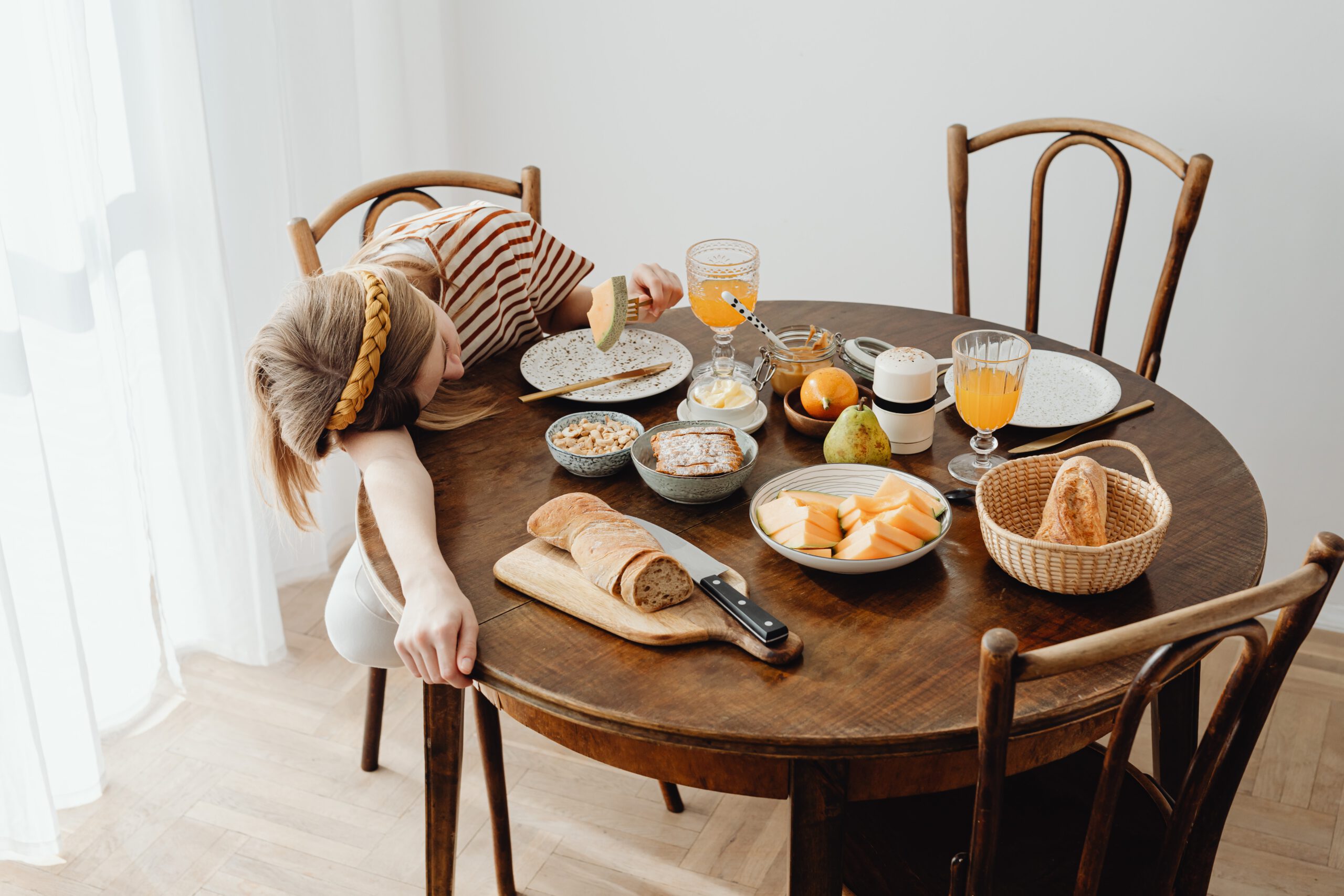
Inadequate sleep does not only make you grumpy and causes you to perform worse at school or work, but also imposes a risk on your physical health. When it comes to nutrition, research shows that a lack of sleep leads to unhealthy eating. Short sleeping time may be related to obesity as it makes you eat more, because changes in hormones ghrelin and leptin lead to increased appetite and hunger [1]. This has been shown in a controlled laboratory study involving sleep-restricted participants, who were not allowed to spend more than 4 hours in bed for 5 consecutive nights. These participants gained a significant amount of weight due to a greater caloric intake. This effect can be explained through later bedtimes that consequently lead to more snacking during late-night-hours [2].
However, lack of sleep does not only affect your diet quantity by eating more, but also your diet quality by eating more unhealthily.
A study done in Japan [3] investigated the effect of poor sleep on dietary intake. Participants were asked about their subjective sleep quality and their dietary habits in the previous month. The results showed that there is indeed an association between poor sleep quality and a lower intake of vegetables and fish, a higher intake of sweets and carbohydrates, and more frequent consumption of sugar-sweetened beverages. In addition, participants displayed more irregular meal patterns compared to participants who slept better, such as skipping breakfast or eating outside of regular mealtimes.
Overall, several other studies have demonstrated a similar link between poor sleep quality and poor dietary habits [4]. However, there are certain limitations that need to be considered for future studies. Most studies only rely on participants’ self-reports of their sleep quality or devices to monitor at home, such as smartwatches that accurately measure sleep vs. wake time. However, these devices do not measure more detailed sleep quality information such as specific sleep cycles [5]. Future studies should therefore measure not only the sleep duration, but also the quantity of deep sleep in a laboratory setting. Additionally, cause-effect relations have not yet been established. Conversely, the food you eat may also impact your sleep outcome, or there may be an unknown factor that influences both your food choices and your sleep quality [6]. Sleep and eating habits could also influence each other reciprocally, which reinforces the importance of monitoring both areas in your life.
My advice is therefore: skip the late-night snacking, hop into your cozy bed and get your good night’s sleep worth of 7 to 8 hours, so that you can tackle the next day refreshed with plenty of nutritious food.
Further Reading
1. Taheri, S., Lin, L., Austin, D., Young, T., & Mignot, E. (2004). Short Sleep Duration Is Associated with Reduced Leptin, Elevated Ghrelin, and Increased Body Mass Index. PLoS Medicine, 1(3), e62. https://doi.org/10.1371/journal.pmed.0010062
2. Spaeth, A. M., Dinges, D. F., & Goel, N. (2013). Effects of Experimental Sleep Restriction on Weight Gain, Caloric Intake, and Meal Timing in Healthy Adults. Sleep, 36(7), 981–990. https://doi.org/10.5665/sleep.2792
3. Katagiri, R., Asakura, K., Kobayashi, S., Suga, H., & Sasaki, S. (2014). Low intake of vegetables, high intake of confectionary, and unhealthy eating habits are associated with poor sleep quality among middle-aged female Japanese workers. Journal of Occupational Health, 56(5), 359–368. https://doi.org/10.1539/joh.14-0051-oa
4. Godos, J., Grosso, G., Castellano, S., Galvano, F., Caraci, F., & Ferri, R. (2021). Association between diet and sleep quality: A systematic review. Sleep Medicine Reviews, 57, 101430. https://doi.org/10.1016/j.smrv.2021.101430
5. Chinoy, E. D., Cuellar, J. A., Huwa, K. E., Jameson, J. T., Watson, C. H., Bessman, S. C., Hirsch, D. A., Cooper, A. D., Drummond, S. P. A., & Markwald, R. R. (2021). Performance of seven consumer sleep-tracking devices compared with polysomnography. Sleep, 44(5), zsaa291. https://doi.org/10.1093/sleep/zsaa291
6.Binks, H., E. Vincent, G., Gupta, C., Irwin, C., & Khalesi, S. (2020). Effects of Diet on Sleep: A Narrative Review. Nutrients, 12(4), 936. https://doi.org/10.3390/nu12040936
